

Tips and Resources
FCS is a very rare condition, but you’re not alone. Learn about ways others are managing this condition in their everyday lives.
1. Try to maintain a very low-fat diet by:
- Eating less than 15-20 grams of fat daily (less than 10-15% of your daily caloric intake)*
- Ensuring essential fats (the fats that the body cannot produce on its own), such as alpha-linolenic acid (ALA, an omega-3 fatty acid) and linolenic acid (LA, an omega-6
fatty acid), are 2% to 4% of daily calories
- Flaxseeds and chia seeds are good sources of ALA in small amounts, as they supply essential fatty acids*
*Appropriate daily fat intake depends upon the individual. Consult your doctor or a licensed dietitian for guidance.
Eating small amounts of the following example foods may help ensure you consume essential healthy fats:
- Beans
- Chia seeds
- Flaxseed
- Light canned tuna in water
- Oysters
- Scallops
- Sea bass
- Shrimp
- Tilapia
- Tofu

2. Swap your fat source for a medium-chain triglyceride (MCT) oil.
Medical-grade MCT oil doesn’t increase triglycerides in people with FCS. There are different kinds of MCT oil available that might help meet the dietary needs of someone living with FCS. You can ask your doctor or dietitian to help you find the one that’s best for you and prescribe it for you.
3. Add fat-free or low-fat, protein-rich foods to every meal and snack.
Great sources of protein that are low in fat include lean chicken, lentils, non-fat dairy like yogurt or cheese, shrimp, tuna, and turkey. See the table for the fat and protein content in a typical serving size.
| Serving Size | Fat | Protein | |
|---|---|---|---|
| Lean chicken breast | 3 ounces | 3.8 grams | 26.4 grams |
| Lentils (boiled) | 1 cup | 0.8 grams | 17.9 grams |
| Nonfat cheese | 1 ounce | 0 grams | 9.1 grams |
| Large shrimp | 6 pieces | 0.6 grams | 7.5 grams |
| Light canned tuna in water (drained) | 3 ounces | 0.8 grams | 16.5 grams |
| Fat-free ground turkey | 3 ounces | 2.3 grams | 27 grams |
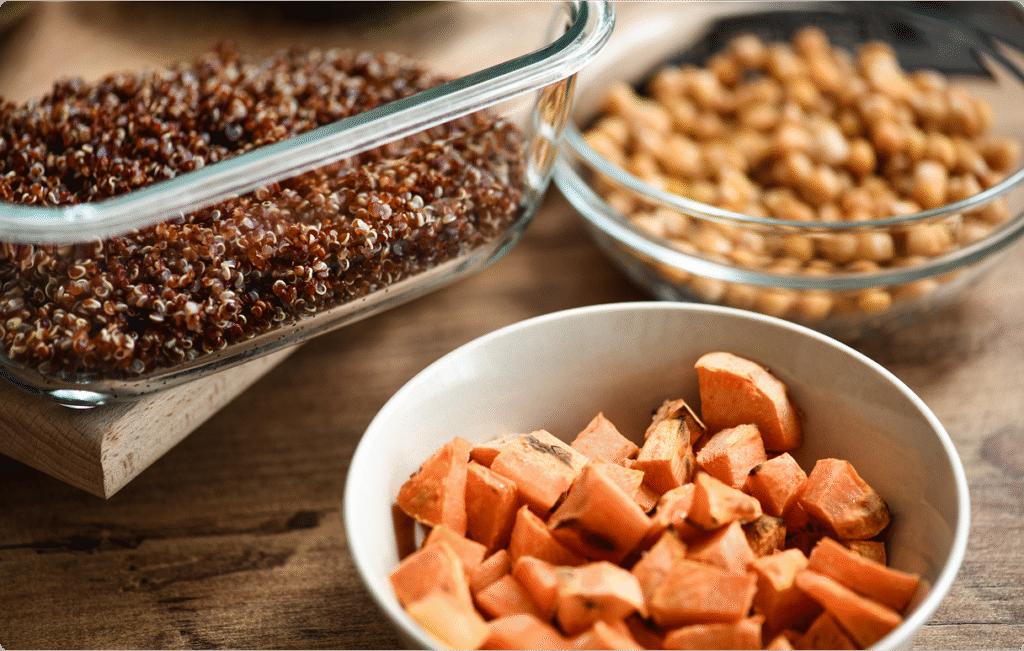
4. Opt for complex carbohydrates, limit refined and simple carbs, and avoid added sugars.
Complex carbohydrates include:
- Whole grains like quinoa, oats, and brown rice
- Chickpeas, black beans, and peas
- Starchy vegetables like potatoes, butternut squash, and beets
- Fruits like bananas, apples, and blueberries
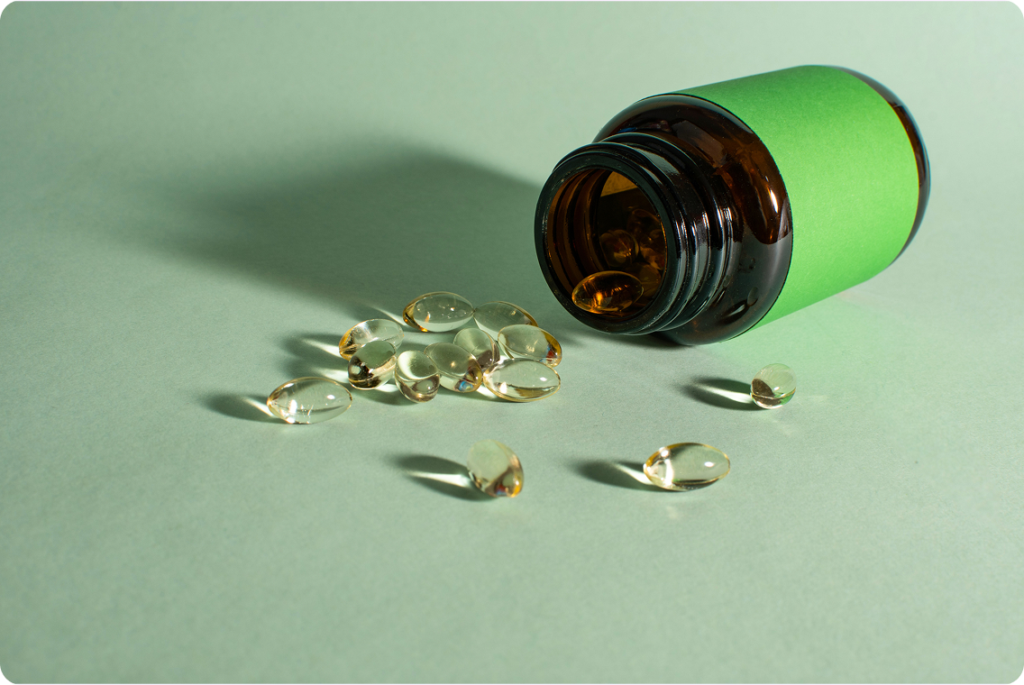
5. Have your levels of fat-soluble vitamins (A, D, E, K) and minerals regularly checked, and supplement if necessary.
The main food sources for fat-soluble vitamins are animal fats, vegetable oils, dairy foods, liver, and oily fish. Your body needs these vitamins, but these foods may have too much fat content for a person living with FCS. Consider talking to your doctor about checking levels of these vitamins and any potential supplements you may need.
Minerals, such as calcium and iron, are found in meat, fruits, and vegetables. You may be able to get what your body needs in an extremely low-fat diet.
Examples of nutrient-dense foods within the daily fat limit:
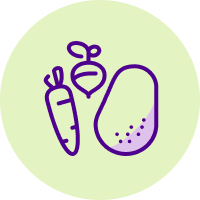
Vegetables
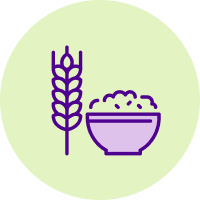
Whole grains

Legumes

Fat-free milk

Lean proteins
6. Focus on nutrient-dense foods.
These include vegetables, whole grains, legumes, fat-free dairy, and lean proteins. Avoid added sugars, desserts, sugary drinks, fruit juices, high-fat cooking oils, and foods made with fats or oils. People living with FCS have an extremely low-fat diet that only allows 15-20 grams of fat per day.
7. Spread calorie and fat intake evenly throughout the day and avoid overeating. Try to eat small portions to avoid feeling too full.
Typical dietary recommendations for people living with FCS:
- Include these:
- Fat-free dairy products
- Fat-free milk
- Lean proteins
- Legumes
- Vegetables
- Sufficient water intake
- Whole grains
- Avoid these:
- Added sugars
- Alcohol
- Cooking spray and high-fat oils
- Desserts
- Foods made with or containing fats or oils
- Fruit juices
- Sugar-sweetened drinks
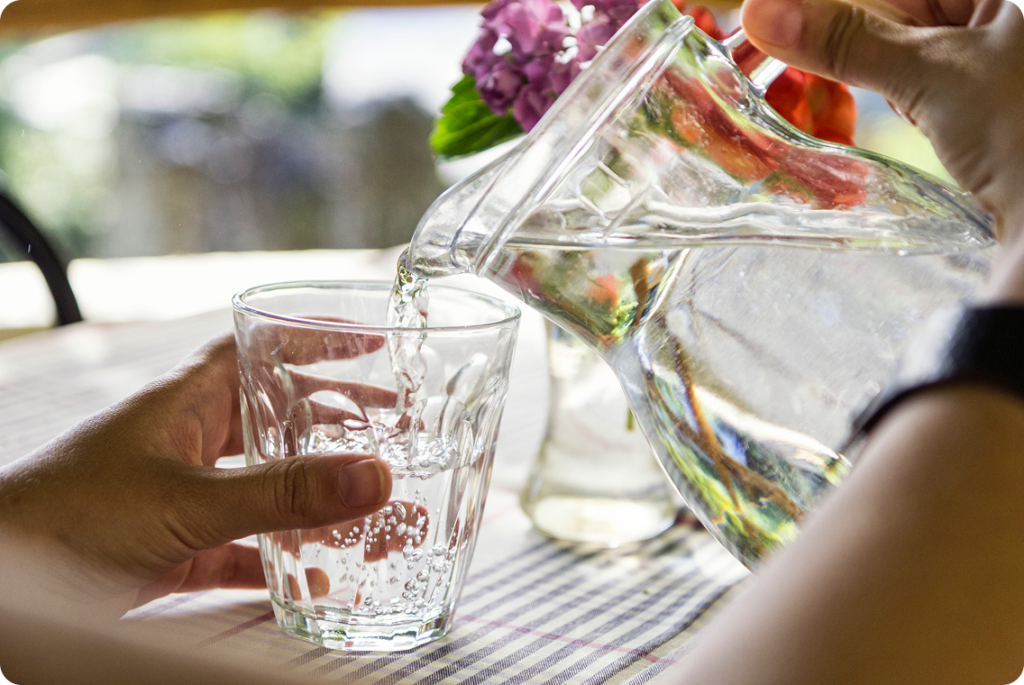
8. Avoid drinking alcohol.
Drinking alcohol raises triglyceride levels.

9. The National Lipid Association recommends at least 150 minutes of moderate-to-higher intensity physical activity per week.
While this is a general guideline for those living with high triglycerides, people with FCS should consult their healthcare team to create a personalized exercise plan.
This content is for informational purposes only and is not intended to be a substitute for professional medical advice. If you have very high triglycerides, you should talk to your doctor or professional healthcare provider about the diet and exercise plan that is right for you.
Tasty, enjoyable FCS-safe tips for cooking and dining out
Because diet is one of the most important factors when managing FCS, cooking and dining out may become a major source of stress. But there are ways to enjoy cooking and dining out while maintaining your diet. Here are some tips for cooking and dining out on an FCS-friendly diet:

Plan your meals out

Evaluate menu options ahead

Join and learn
—Fin, parent of child living with FCS
Hear Fin and Devon’s FCS story

Eating with friends

Find someone who will listen
—Jill, living with FCS
Hear Jill’s FCS story
Scroll to Explore
Traveling with FCS
Although your dietary requirements can make traveling more difficult, they may not make it impossible. Talk to your doctor about how you can maintain your diet while traveling with very high triglycerides, like FCS.

Want to learn more about lipids?
PRACTICAL SUPPORT AND ADVICE FROM PEOPLE LIVING WITH VERY HIGH TRIGLYCERIDES
If you have very high triglycerides, you may find it helpful to hear what others with very high triglycerides have learned along their journeys.

Join and learn
—Fin, parent of child living with FCS
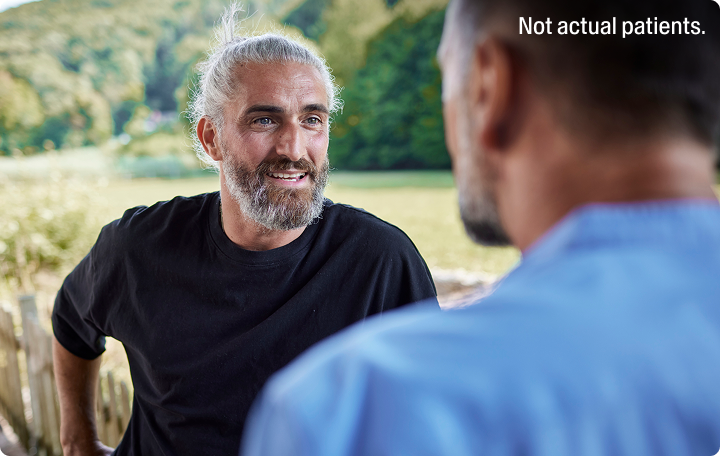
Find someone who will listen
—Scott, living with FCS

Cut the red tape
—Julie, living with FCS

Find a voice
—Scott, living with FCS

Mind your mental health
—Fin, parent of child living with FCS

You are not alone
—Julie, living with FCS
Scroll to Explore
Community support & mental health
Managing very high triglycerides may be an emotional challenge as well as a physical one. Emotional support from family, friends, and patient organizations may reduce stress and empower people with FCS. You don’t need to bear the burden alone.

Once I finally had a diagnosis and got close to figuring it out, I jumped both feet in into finding people that had this disease as well because I had been on an island by myself for so long. Just the thought of knowing that there is someone else in this world that has this same thing was very comforting to me.
—Scott, living with FCS
You deal with this thing where you start to have to learn a new language because I was told he had hepatosplenomegaly, which obviously meant nothing to me, but I found out it meant enlarged liver and spleen.
—Fin, father and caregiver to Devon, living with FCS

WANT TO HEAR MORE FROM OTHERS WHO ARE LIVING WITH FCS?
Helpful resources, organizations, and support for people with FCS
Organizations dedicated to supporting people living with FCS:




Helpful and informative downloadable fact sheets:




Emergency Room (ER)/Emergency Department (ED) Document:


Sign up for updates and more information
Receive the latest news and insights about reducing triglycerides to <500 mg/dL.